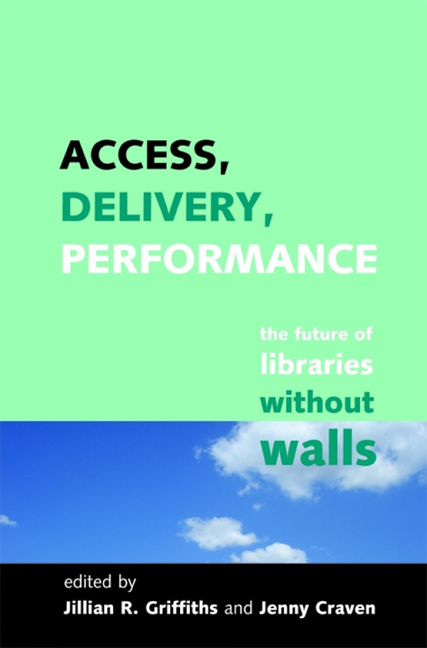Book contents
- Frontmatter
- Contents
- Contributors
- 1 Introduction
- 2 The Library Research Unit at the University of Lancaster, 1967–1972: a memoir
- Theme 1 Libraries, learning and distance learning
- Theme 2 Widening access to information
- Theme 3 Changing directions of information delivery
- Theme 4 Performance, quality and leadership
- Peter Brophy: a selected bibliography
- Index
2 - The Library Research Unit at the University of Lancaster, 1967–1972: a memoir
Published online by Cambridge University Press: 08 June 2018
- Frontmatter
- Contents
- Contributors
- 1 Introduction
- 2 The Library Research Unit at the University of Lancaster, 1967–1972: a memoir
- Theme 1 Libraries, learning and distance learning
- Theme 2 Widening access to information
- Theme 3 Changing directions of information delivery
- Theme 4 Performance, quality and leadership
- Peter Brophy: a selected bibliography
- Index
Summary
Introduction
Peter Brophy entered librarianship by a thoroughly unorthodox route. He was one of the first students to take the BSc in Information Science developed by B. C. (‘Bertie’) Brookes at University College, London, graduating in 1971. He then moved into full-time research on library problems at the Library Research Unit at the University of Lancaster Library before moving on in 1973 to library auto - mation and eventually library management. At the time both his undergraduate degree and the Library Research Unit were radical departures from conventional practice. This memoir, written mainly from memory, provides an account of the Lancaster Library Unit in which Brophy's professional career began.
A new university at Lancaster
The University of Lancaster was one of the ‘new universities’ founded in the 1960s to help accommodate the rapid expansion of university education in the UK. Charles F. Carter, the founding Vice-Chancellor, an economist and a Quaker, was concerned that the University address real-world problems as well as regional needs. Lancaster had the first department of operational research in the UK, the first department of marketing, and, also a first, a department of systems engineering with special interest in optimization in chemical industries. The ethos of the new university was very similar to that of the land grant universities in the USA. Currently, the University's website opens with the slogan ‘Learning for the real world’ (www.lancs.ac.uk).
Among the very earliest appointments was the University Librarian, A. Graham Mackenzie, who had graduated in Classics from the University of Glasgow. His handle-bar moustache and his enthusiasm for machines were both attributed to his service in the Royal Air Force. He liked to recall how when he was interviewed he was taken south of Lancaster to a grassy, windswept hillside, the Bailrigg site, where he was abruptly asked what a first-rate university library would be like in 20 years. His interviewers said that they wanted one on this site and that the first students would be arriving in 18 months. It was a challenge to which he responded with enthusiasm and boldness. It was clear that the planned library would have to be developed quickly and be both economical and effective. Initially the library service was provided in temporary quarters in Lancaster and the first phase of the new library building opened in January 1967.
- Type
- Chapter
- Information
- Access, Delivery, PerformanceThe Future of Libraries Without Walls, pp. 7 - 20Publisher: FacetPrint publication year: 2008



